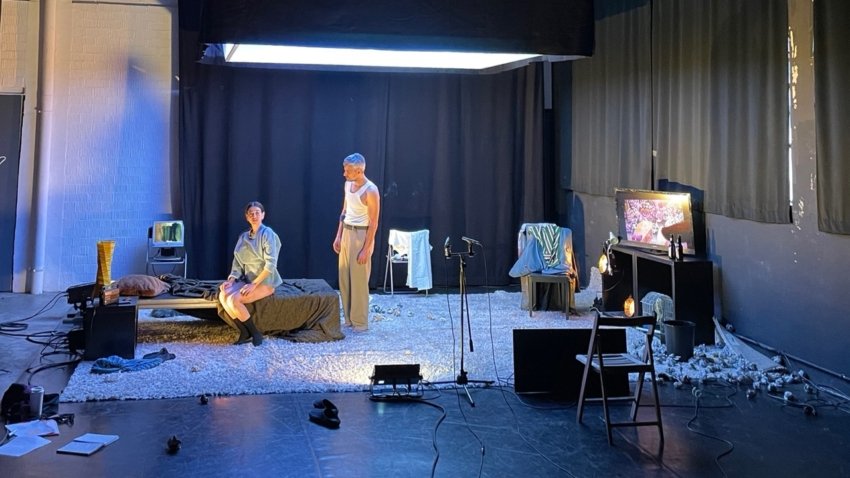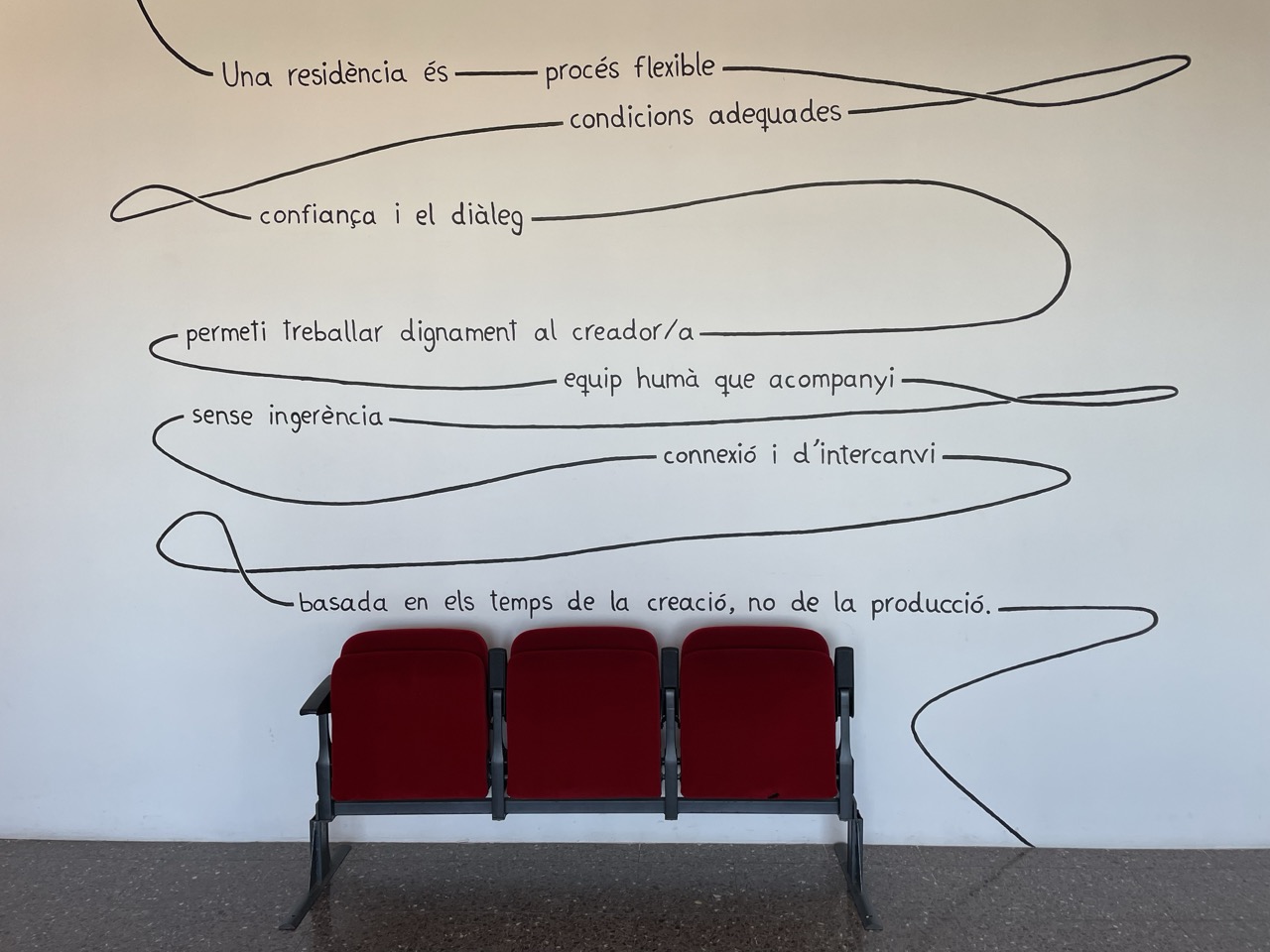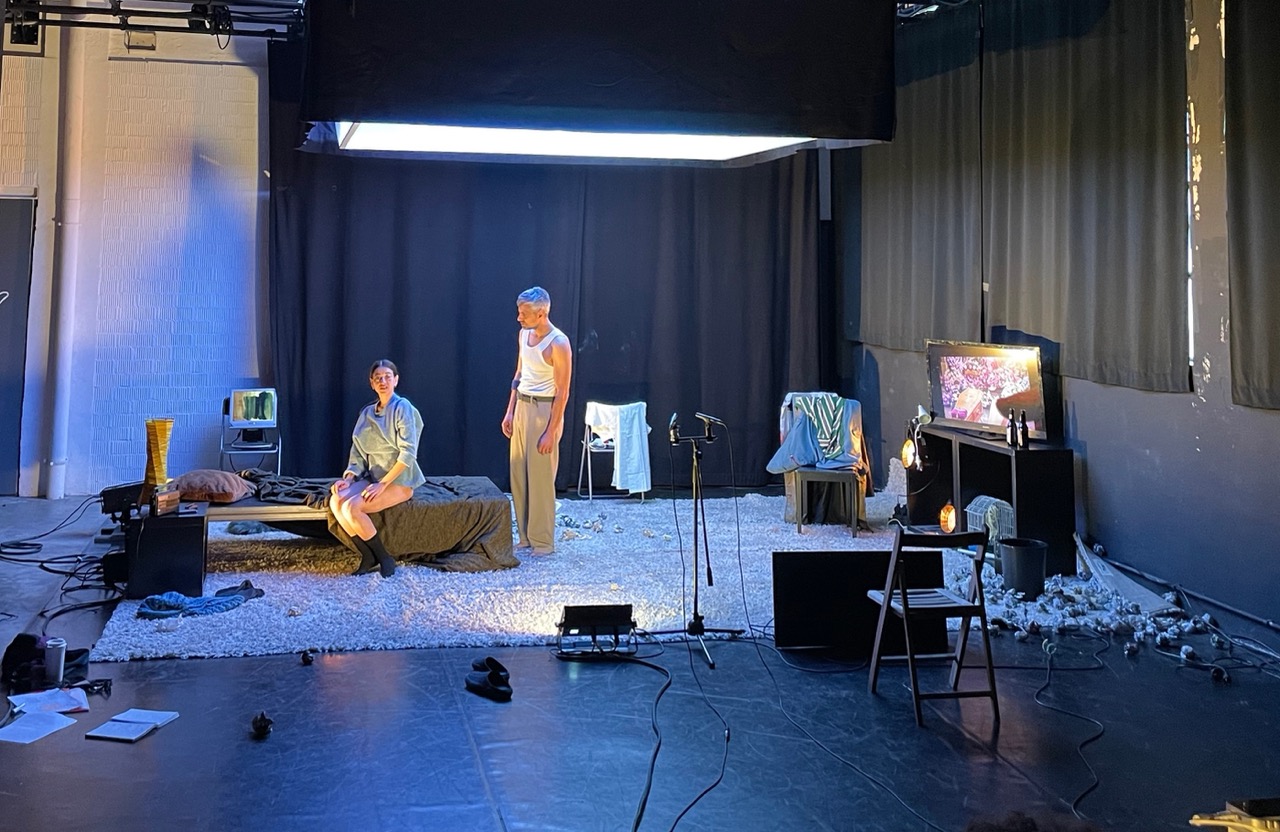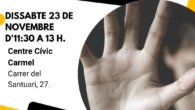
This is not a residence, article by David Marin
Residences are, for now, one of the relevant topics within from Vives Arts sector, there are many forums and debates around them, but at the same time we still have no clear how are, for how They must serve, if they are really a useful and viable tool, if we are not squad in this word to postpone precariousness, lack of resources in co -productions, etc. I think it is time to name things, to face the reality of the sector and to see if conciliation, diversity, professionalization and dignification have a place in what we call: residences.
“A residence is a flexible process that develops in a workspace and for a specific time and offers conditions appropriate and adapted To the specific needs of each project. Therefore, it takes a flexible space that generates the trust and dialogue to be able to take care of the process and allow to collect, share and patrimonialize The knowledge that is generated inside the artistic practices. Must allow work dignity and must be accompanied by a human team In different fields, but without interference in the creative process. Must be able to open and offer Connection and exchange spaces that facilitate the continuity of artistic trajectories and, thus, must be part of a ecosystem that includes the artist, the creation center and the environment. The residence must be accessible across Different selection mechanismsand must be based on the TEMS of research, not of production.“
This definition, born of the consensus generated in a working days of 2017 with different agents in the sector, has been used since then at Nau Ivanow.

The reason to try to agree on a definition was sought, we were in a time of rethinking the project, and it was clear that we wanted to focus on a residence space, leave the exhibition and focus on the research processes, But that is why we had to generate a framework based on the real needs of the sector (not on ours) and also served us as a “guide” to which we had when we had doubts or questions about what we were doing about the Residences.
Often we call residences to simple assignments of spaces, poorly paid co -productions or exchange instances where, as a rule, creators are the ones who they take away the worst part. Already is Time that among all the people we are part of the creative ecosystem we begin to generate a glossary to know what names, what implications and needs are required in each part of the creation value chain.
In that sense, I want to emphasize that a residence should always be paid and accompanied. We need to value the creative research process as an important part (if not the more) and essential of the chain. The agents we welcome often have the privilege of being able to reach more easily on cultural policies debates, which is why we should have the “courage” of calling residences only those who dignify and value it. Otherwise, we are not working for dignification and we cheat on ourselves. We need to think that if we manage to focus here and say things by name, we can revalute Our projects and this will, consequently, involve more resources that will improve the conditions of the residences and the people we make.
As residence spaces, we must believe that this first stage, where the R&D of the Vives Arts is generated, is different and has specific characteristics. During this stage of research, the creators who come to inhabit our spaces are not just a room where it rehearses, but also an artistic and professional growth that will come from the exchange, to face the unknown, to ask questions. , to expose themselves and discover other methodologies and ways of looking different to those that are accustomed to. It is the time of more permeability, both for the person who resides, and for the center that welcomes. And it is precisely in this fact, to look for something different, that a research residence cannot be the same in which we do not know where I’ll arrive nor what questions will be generated, that the instance that involves, whether or not, to finish a piece on a marked date and in a particular place. I do not mean that one is better than the other or that one without the other cannot be carried out, I say, simply, that differentiating them will allow us to dignify the work of the artists. If we do not agree on a definition of residence, we are perpetuating the precariousness of the artistic sector in which, on numerous occasions, the creators are forced to pay to be able to carry out their jobs instead of collecting it.
Are there many festivals that host resident projects and generate residence projects, but should these not be co-production projects, or could we call them “production residences”? In the end, these instances seek, whether or not, a final result, even if there is creative freedom, there is a marked calendar, a clear consideration and this should be far from what we consider a research residence that has not of being subject to any specific result. This stage of creation is essential for artistic development at all levels and we have a duty to claim and dignify it.
Some debates and forums talk a lot about co -productions and their importance in generating quality products, but little is said about the investments that many spaces of creation and residences make in this first stage of the process, spaces that often bet blind And with complete confidence in projects that are only ideas or sketches of lines of research, and that provide an economy and accompaniment that in economic valuation, often, is greater than some of the most important co -productions.
I also want to mention the topic of the consideration or services in exchange for residing; Again, we call things by their name and do not take advantage of our power position to demand, after a research residence a consideration. The work of the artists is to investigate and create, and because of this, just like us, they have to charge and enjoy decent working conditions, it is enough to excuse us in “ it put it in the call or in the contract or it is a bureaucratic issue. ” If we are committed to generating residence projects, let’s be clear about what we play, we do not take advantage of filling our programs or our activities and I do not say that it is well or wrong, I only insist that we call each thing by its name and, if necessary, We hack the system.
Part of this dignification involves working consciously the accompaniment. When they give us permission to reside in a country, they somehow offer us to be part of a community, an ecosystem, give us the opportunity to have rights and duties the same as those who have been for some time now. They live or inhabit this place. Also, in theory and returning to the economic part (Malaia gout), in a less unfair and elitist world, this permit allows us to work and dignify the professional part. This permit means that we are not in the case, that the idea is to generate a rooting, that this place will let us leave an imprint. Somehow he will transform us and will make this person who was when he arrives, growing upon facing these new dynamics.
Then, when we allow a residence in our spaces, we must offer these same conditions, inviting to be part of this creative ecosystem, with rights, duties and objectives similar to this residence permit.
As an institution, we need to know that when a person (local or international) comes to make a residence, he does not only seek to have a good rehearsal room or a good accommodation (which also) hopes to be able to nourish himself from l ‘Creative ecosystem and context that surround this space: What community will you find? What is the creative ecosystem of which it must be part of this time? Do you know the culture of the place? And not only do I mean the cultural agenda (which is very important to get an idea of the system), but the local culture, the neighborhood, the language … I do not mean that the resident people have to generate projects, so much Yes, not, with the center’s ecosystem or with the communities, but they must be put in context and accompany them in all the questions that are asked during their process. Not only do we have to ensure good conditions, but we must accompany the stay.
Another important thing is confidence and active listening; As a center, we can have, unwittingly, a lot of interference in the creative part. When there is a request or demand from the people of the creative team, our response and attitude can change 180 degrees the result of the research; Therefore, we will often have to, as we have said before, hack and hack the system in order to accompany in the search to take new eyes and paths, which will surely make us grow by both.
And already, to close, a little hope, I think we are increasingly the people who want to generate this change, this new relationship between centers and artists, this professionalization and dignification of the conditions and although we go slow, we are convinced that This change will come.
Article written by David Marin, director of Nau Ivanow.
This publication is part of a series of quarterly articles that, from Nau Ivanow, will order in order to talk about topics that interest us or to generate a debate and reflection. Published in collaboration with the Red Scénica Magazine









